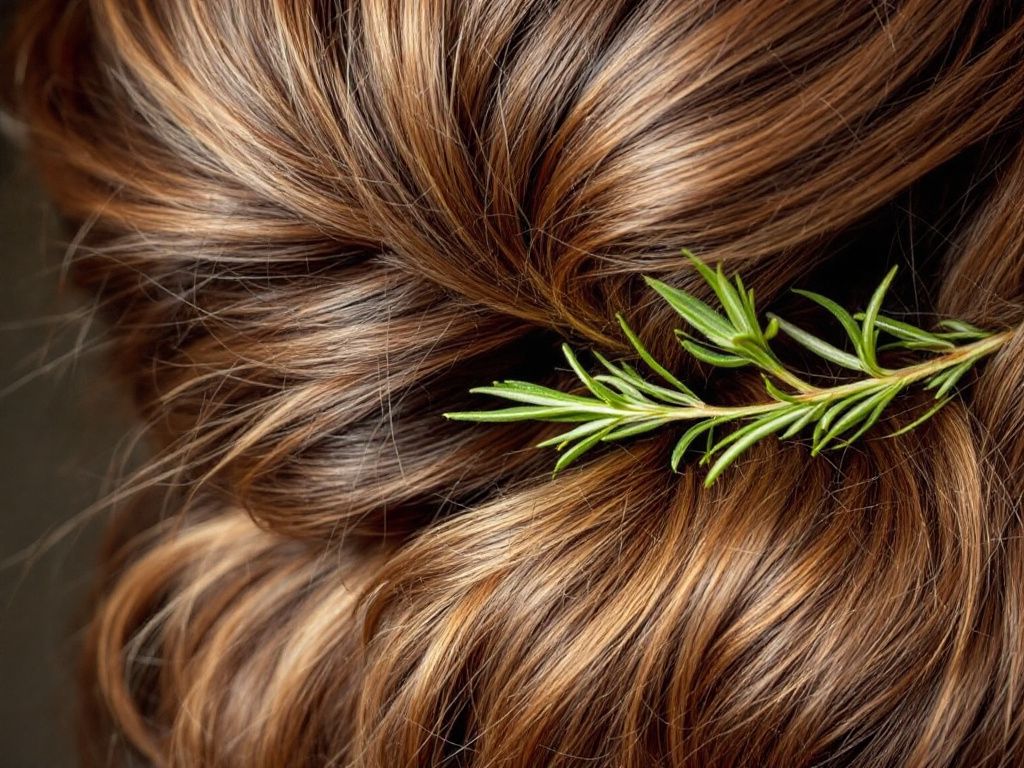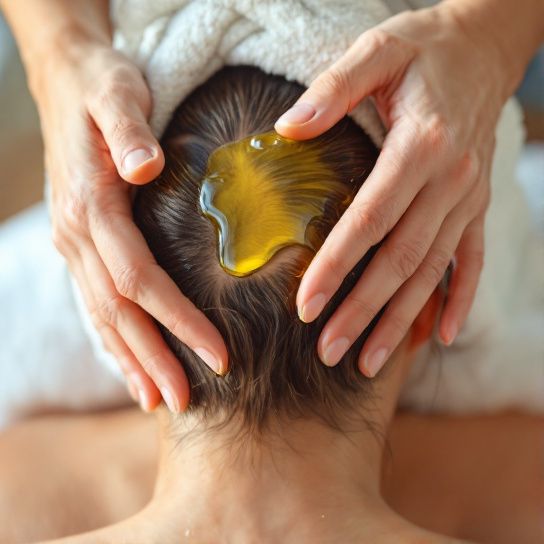
Hey there! Let’s dive straight into something that’s got a lot of people scratching their heads, literally and metaphorically—hair loss. If you’ve been sparsely plucking hairs off your comb and wondering why they don’t seem to stay on your head, you’re definitely not alone. But instead of buying into a million different treatments that promise the moon and stars when it comes to hair restoration, why not try something natural? Natural oils might be the solution we’ve been overlooking.
Now, before you raise an eyebrow in skepticism at these oils, hear me out. Natural oils for hair loss prevention might just be your new best friend—and an affordable one at that. Trust me, these little bottles can pack quite a punch if you know how to utilize them.
The Natural Oil Arsenal: Where to Start?
We’re talking essential oils for hair here and their various magical properties. Here’s the scoop on which oils are worth giving a toss if you’re battling the ever-dreaded hair thinning. Hang tight—we’re going to navigate through some fabulous options.
1. Castor Oil: The Age-Old Remedy
Let’s kick things off with castor oil. It’s been used for ages and with good reason! Known for its fatty acids and vitamin E content, castor oil really helps improve blood circulation, leading to healthier, stronger hair. The trick is in the application—warm a small amount of oil, gently massage it into your scalp, and leave it overnight if you can.
*Why Does it Work?* Castor oil can boost blood flow in the scalp, necessary for adequate nutrient-rich blood to reach the hair follicles. You might notice the texture isn’t lightweight, but don’t let that dissuade you. Highly effective with anti-inflammatory properties, it may even help alleviate dandruff!
2. Coconut Oil: The Versatile Hero

Next up is coconut oil, a versatile hero with laurels of nutrients that deeply penetrate your hair shafts, reducing protein loss. Aromatic, light, and easy-going. Applying coconut oil to the hair not only helps it maintain its natural proteins but also combats dryness.
*When is it Best Used?* Before washing your hair, leave it in as a deep conditioning treatment for added moisture or as a lighter, post-wash conditioning option. Coconut oil also helps to condition and improve the overall health of your scalp, supporting thicker and nourished hair.
3. Rosemary Oil: More Than a Kitchen Staple
Turning our attention to rosemary oil, which, if you’ve been keeping layered manes on your salad, you might already have a stash in the kitchen. Packed with antioxidants, this oil helps increase cellular turnover, acting like a natural minoxidil.
*What’s the Secret Magic?* Promoting scalp health and enhancing circulation, rosemary oil is said to help whisk your hair woes away. Mix a few drops into a carrier oil like avocado or grapeseed, massage it in before hopping into a relaxing shower. You’ll love how refreshing it feels.
Other Natural Heavyweights in the Ring
There’s more where that came from, though. If your medicine cabinet has room for a few more miracle makers, here are some additional runners-up:
4. Argan Oil: Liquid Gold from Morocco
Argan oil is dubbed liquid gold for good reason—it’s rich in antioxidants, essential fatty acids, and vitamin E. An all-round wonder when it comes to treating dry, damaged hair.
*How to Use It Effectively:* Use argan oil as a finishing touch. After drying and styling your hair, rub a couple of drops between your palms and smooth it over your strands to reduce frizz and add a healthy shine.

5. Peppermint Oil: Tingling Transformation
Now, let’s chat peppermint oil. The invigorating tingling sensation is more than just a kickstart to the day. Peppermint oil is incredibly effective in improving circulation and promoting healthy hair follicles.
*Looking for a Unique Approach?* Dilute this potent oil before using—blend with coconut or jojoba oil and massage delicately into your scalp. Look for a refreshing wake-me-up that feels like a mini spa retreat!
6. Jojoba Oil: Lightweight yet Mighty
Jojoba oil’s molecular structure is similar to our body’s natural sebum, making it deeply penetrating and ultimate in hydration. It’s lightweight, non-greasy and easily absorbed by your scalp, nourishes hair follicles from within.
*Perfect for All Hair Types* It’s great for both brittle damaged hair and oily locks. Use it as a lovely nourishing scalp treatment or incorporate a couple of drops into your regular conditioner.
The DIY Infusion: Mixing Oils at Home
Feeling adventurous? Perhaps crafting your blend is more up your alley. Here’s what you can do:
- Choose Your Base Oil: Options include coconut, jojoba, or olive oil. These will act as carriers for your essential blends.
- Select Your Essential Oils: Pick from rosemary, peppermint, lavender, and more. They each bring unique properties to the table.
- Mix and Adjust: Combine equal parts of base oil with a few drops of the essential oil, adjusting potency as needed.
- Apply Regularly: Consistency is key! Apply to the scalp a few times a week for the best results.
Commitment to Consistency

Seriously, maintaining any hair ritual is about gals or guys showing some commitment. It’s about making time, not leaving these bottles to gather dust or just for bragging in your social circle about how you ‘tried that silk-smooth hair Sunday’.
Good old-fashioned consistency, along with stress management and a balanced diet, will improve results when exploring the avenue of natural oils for hair loss. True, there aren’t any instant fixes, but investing a little time pays off with luscious locks down the road.
Wrapping It All Up
So there we have it—your potential rescue lineup against the gloomy issue of hair loss. These natural oils for hair present a gentle yet effective option to explore, and experimentation might land you that Holy Grail combination that slips seamlessly into your dventure.
Remember, the point is to enjoy the process. Don’t shove expectations over health benefits and tranquil self-care. Whether your main concern is keeping those strands thick or getting zen in your self-care routine, these essential oils for hair can lend a hand. All it takes is a genuine splash of nature’s oil into your life.
Enjoy the ritual because it’s as much about the journey as the results. And hey, if nothing else, at least your home will smell like a garden retreat!
Frequently Asked Questions
What natural oils are effective for preventing hair loss?
Several natural oils have been found to be effective in preventing hair loss. These include peppermint oil, which improves blood circulation to the scalp and reduces inflammation[2][3][4]; rosemary oil, which stimulates hair follicles, improves circulation, and prevents hair thinning[2][3][4]; pumpkin seed oil, which has been shown to increase hair counts in men with androgenetic alopecia[1][3]; and lavender oil, which promotes faster hair growth and reduces scalp irritation[1][4].
How do peppermint and rosemary oils work for hair growth?
Peppermint oil works by stimulating blood flow to the scalp through its cooling and tingling effect, which boosts hair growth and promotes follicle health. It also reduces scalp inflammation and has antimicrobial properties[2][3][4]. Rosemary oil stimulates hair follicles, improves scalp circulation, and addresses hormonal imbalances like DHT, which are responsible for hair thinning and loss. It also soothes an irritated scalp and prevents hair thinning[2][3][4].
Can argan oil and olive oil help with hair loss?
Argan oil, while not known for promoting hair growth directly, helps protect hair against damage from pollution, sun, and styling. It has anti-inflammatory and antioxidant properties that can tackle skin conditions causing hair loss, such as psoriasis and dermatitis[1]. Olive oil is rich in emollients and vitamin E, which help soften and condition hair, protect it from sunlight and pollution, and may stimulate hair growth due to a compound called oleuropein[1].
Are there any potential side effects or precautions when using natural oils for hair loss?
While natural oils are generally safe, there are potential side effects and precautions to consider. Essential oils can cause skin irritation and allergic reactions, especially if applied undiluted. It is crucial to dilute essential oils with a carrier oil and perform a patch test before full use[4]. Additionally, some oils may not be suitable for children or individuals with certain health conditions, so consulting a healthcare provider or pediatrician is recommended[4].
References


Leave a Reply